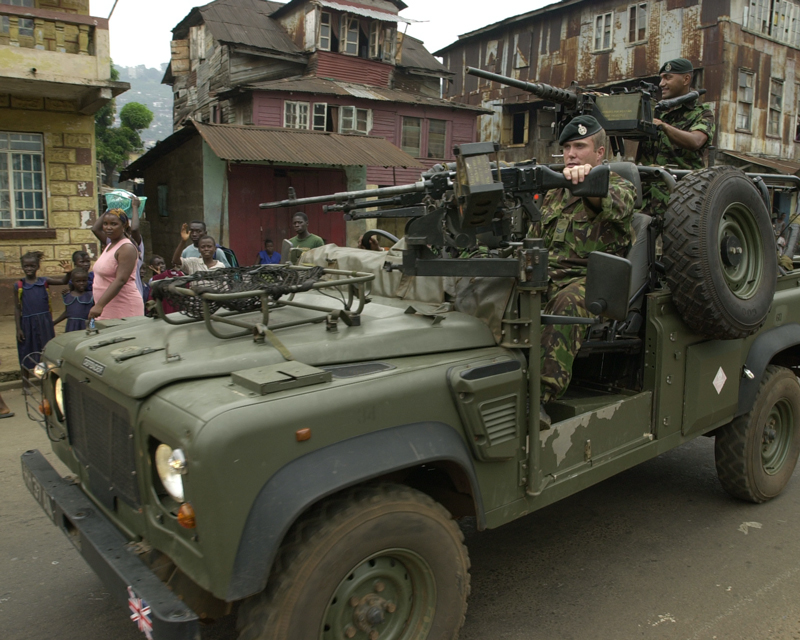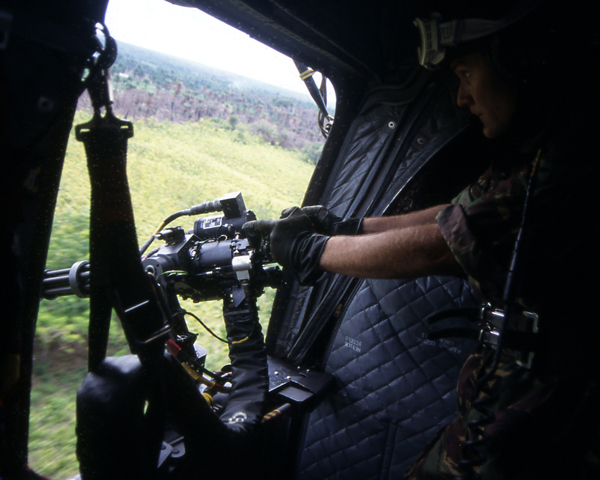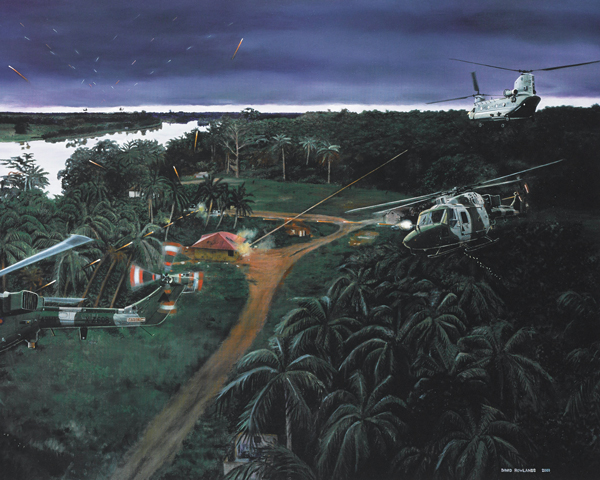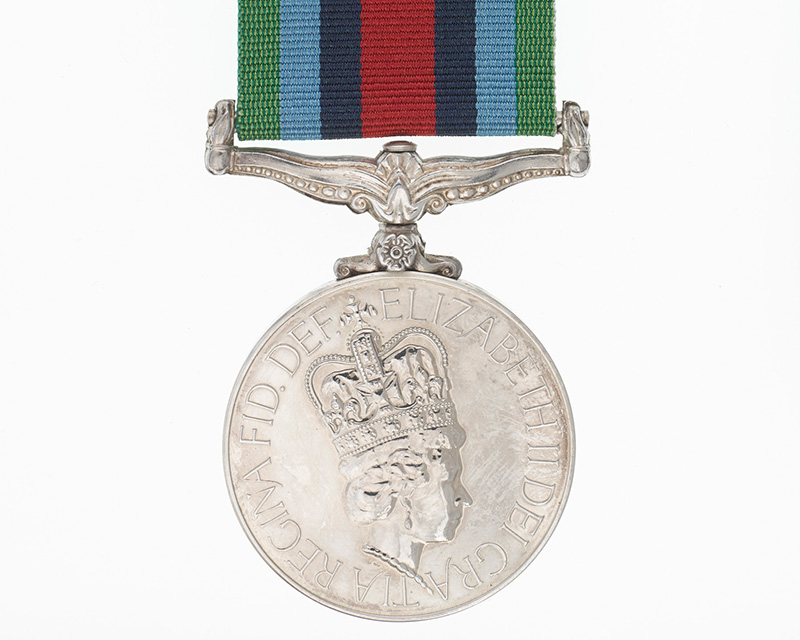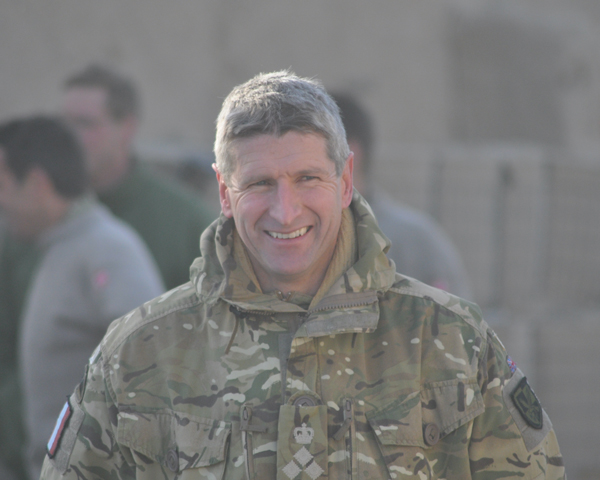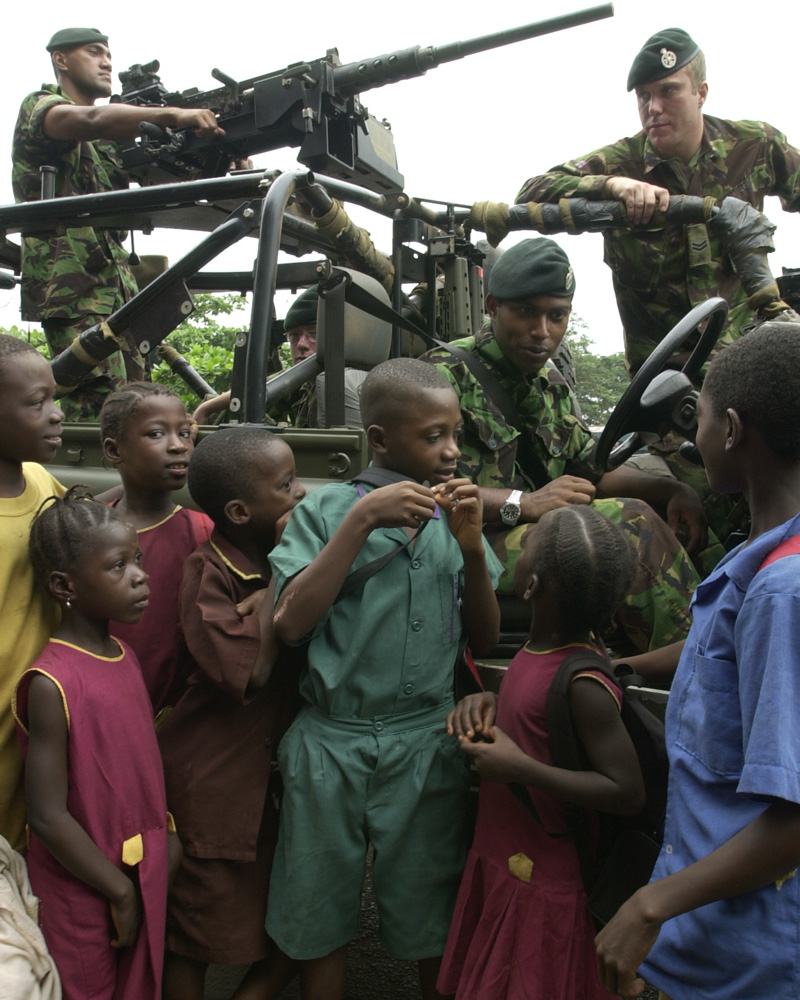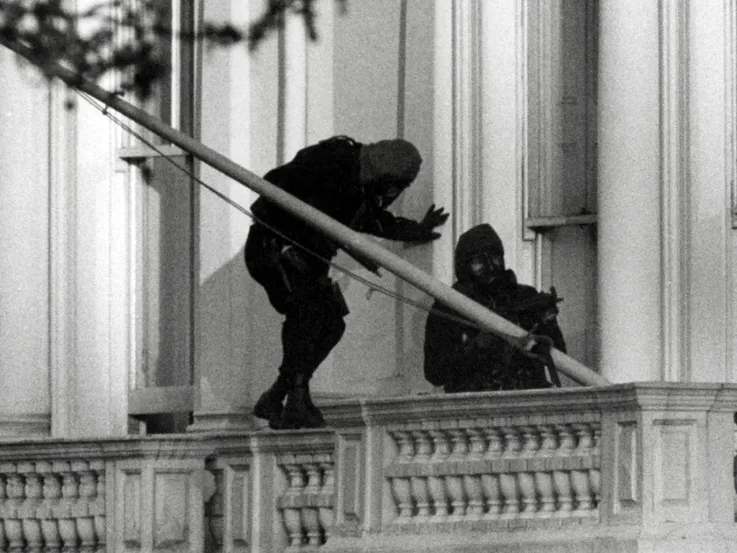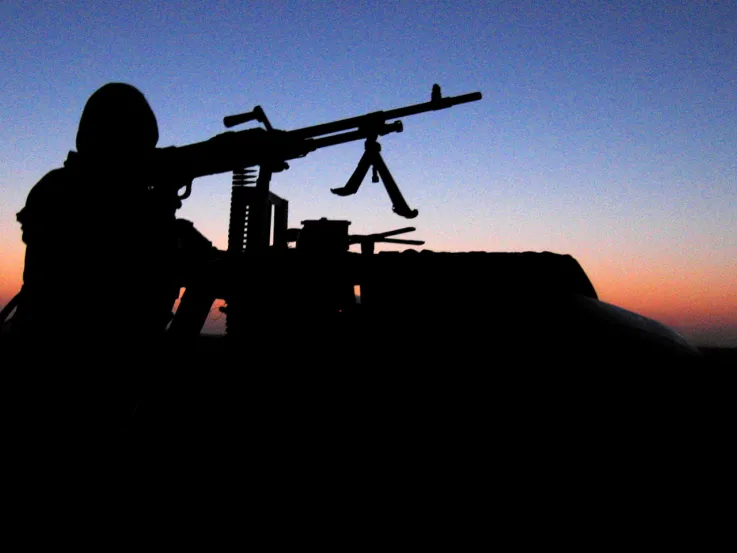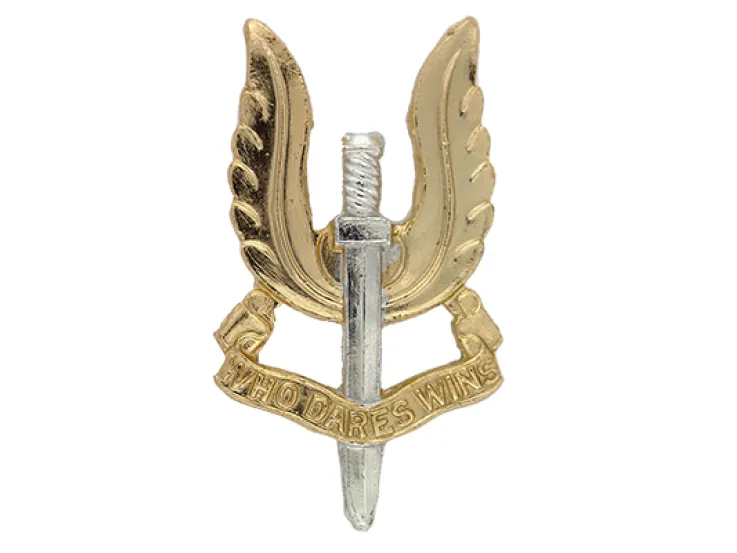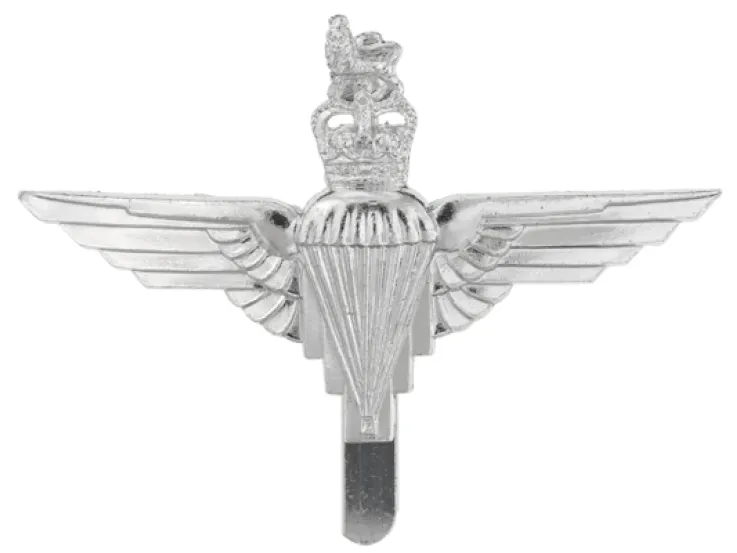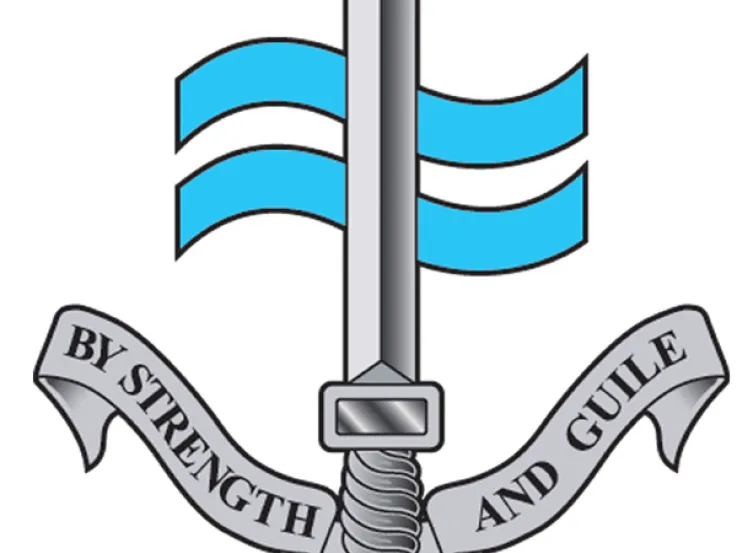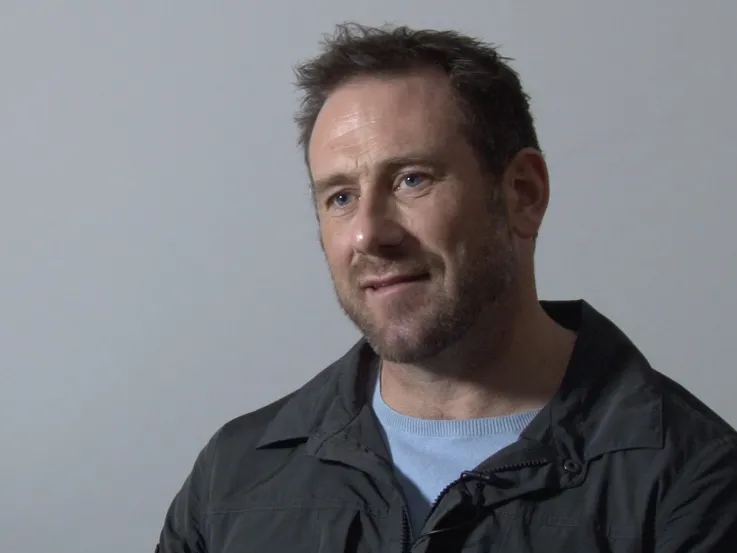Sierra Leone
At the dawn of the 21st century, the West African nation of Sierra Leone, a former British colony, was a chaotic and dangerous place. For decades, the country had suffered chronic political instability and had been ravaged by corruption and violence.
In 1991, a full-scale civil war had erupted when a rebel group known as the Revolutionary United Front (RUF) began an armed conflict with the government. Brutal gangs and military groups fought bitterly for control of the country and its great mineral wealth, especially its diamonds. Many people lived in fear of murder, mutilation, rape and abduction.
In May 2000, Britain deployed troops to the country to evacuate foreign citizens and resist the RUF as it advanced on the capital, Freetown. Following this, British forces stayed on to train Sierra Leone’s army and support a United Nations peacekeeping force.
The deployment
This extract from the British Army film 'Charlie Charlie One' outlines the initial British military deployment to Sierra Leone in May 2000.
British patrol captured
On 25 August 2000, a vehicle patrol consisting of 11 soldiers of The Royal Irish Regiment and one Sierra Leonean soldier entered the territory of a vicious armed gang known as the West Side Boys. The patrol was surrounded and forced to surrender.
The soldiers were taken hostage and held in the gang’s base in the village of Gberi Bana, on the Rokel Creek, deep in the jungle. The West Side Boys were extremely dangerous and unpredictable. Their volatile behaviour was fuelled by alcohol and drugs.
Ambush
Corporal Ian Getty of The Royal Irish Regiment describes the capture of the patrol. Interviewed in 2007.
Negotiations
Two days later, Lieutenant Colonel Simon Fordham, commander of 1st Battalion The Royal Irish Regiment, began face-to-face negotiations for the patrol’s release.
This was a tense and precarious encounter. The West Side Boys were intimidating, aggressive and erratic. Fordham and his team persevered under the constant fear that negotiations could break down at any time, with violent and tragic consequences.
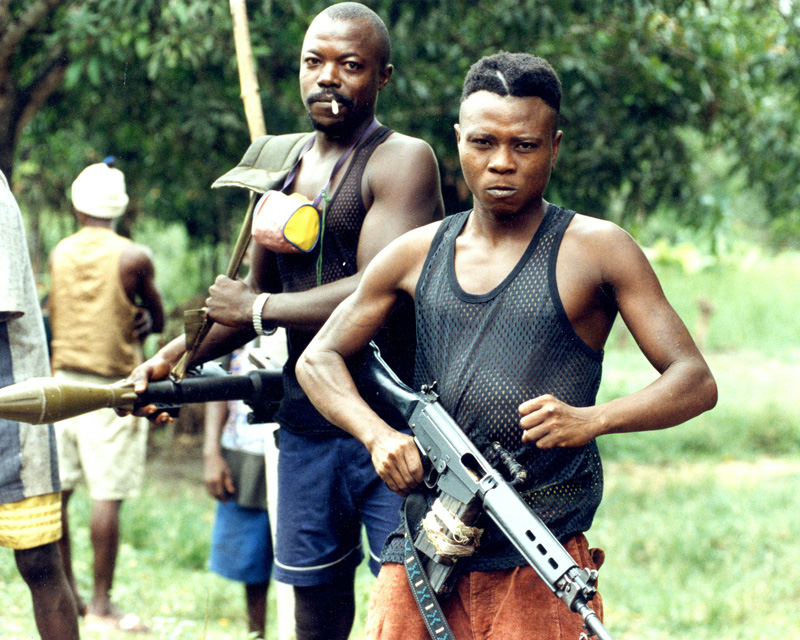
Members the West Side Boys gang, 2000 (© Andrew Chittock)
Meeting
Colonel Simon Fordham of The Royal Irish Regiment describes his tense first meeting with the West Side Boys. Interviewed in 2009.
Hostages in Gberi Bana
The captured soldiers were in grave danger. They were subjected to abuse, including beatings and mock executions, and kept in insanitary conditions with poor food and water, and no medical aid.
The Sierra Leonean soldier was treated particularly badly and his life was placed in critical danger.
Prisoner
Corporal Ian Getty of The Royal Irish Regiment describes what it was like to be a prisoner of the West Side Boys. Interviewed in 2007.
Special Forces arrive
The negotiations enjoyed some success. The British were allowed to see some of the prisoners, one of whom managed to pass a plan of the West Side Boys’ base to Fordham. Later, half of the prisoners were released in return for a satellite telephone.
Meanwhile, the British were preparing a military response should it be needed. Special Forces were despatched to Sierra Leone. They quickly deployed reconnaissance teams by boat to hide in the jungle near the West Side Boys’ bases at Gberi Bana and nearby Magbeni.
With careful observation, and using sophisticated sound detectors, they gathered intelligence that would be vital for any rescue mission. These troops had to endure days of gruelling ‘hard routine’, in which they had to live silently and patiently in dense vegetation, suffering insects and other irritants.
Map
Colonel Simon Fordham of The Royal Irish Regiment describes receiving an escape map from a prisoner of the West Side Boys. Interviewed in 2009.

Special Forces deploy by boat during Operation Barras, September 2000 (© Andrew Chittock)
Barras
After two weeks, it began to look as though the negotiations had failed. The West Side Boys’ demands became more outlandish and there were fears that the hostages could be executed at any moment. On 10 September, a rescue operation, codenamed Operation Barras, was mounted.
With no covert method of attack available, Special Forces and a support group drawn from 1st Battalion The Parachute Regiment were flown in at dawn by helicopter. This was a high-risk operation. The noise of the helicopters could be heard from a long way off, making surprise difficult to achieve. The helicopters were heavily armed and fired off flares to disorientate their enemies, but they were still extremely vulnerable to fire from the ground.
Chinook, Lynx and Mil Mi-24 ‘Hind’ helicopters circled around Gberi Bana and Magbeni to provide valuable fire support to the hostage rescue mission. They targeted enemy heavy weapons and the banks of the Rokel Creek to prevent the West Side Boys sending in reinforcements across the river.
Hostages freed
A Special Forces team fast-roped down from the helicopters into the heart of Gberi Bana and raced to get to the hostages before they could be executed. The Special Forces reconnaissance troops provided crucial fire support from the jungle.
Other teams deployed around the village to secure the position and drive the West Side Boys into the jungle. Against the odds, the hostages were all rescued and no helicopters were shot down. However, one soldier was killed.
Rescue
Corporal Ian Getty of The Royal Irish Regiment describes being freed. Interviewed in 2007.
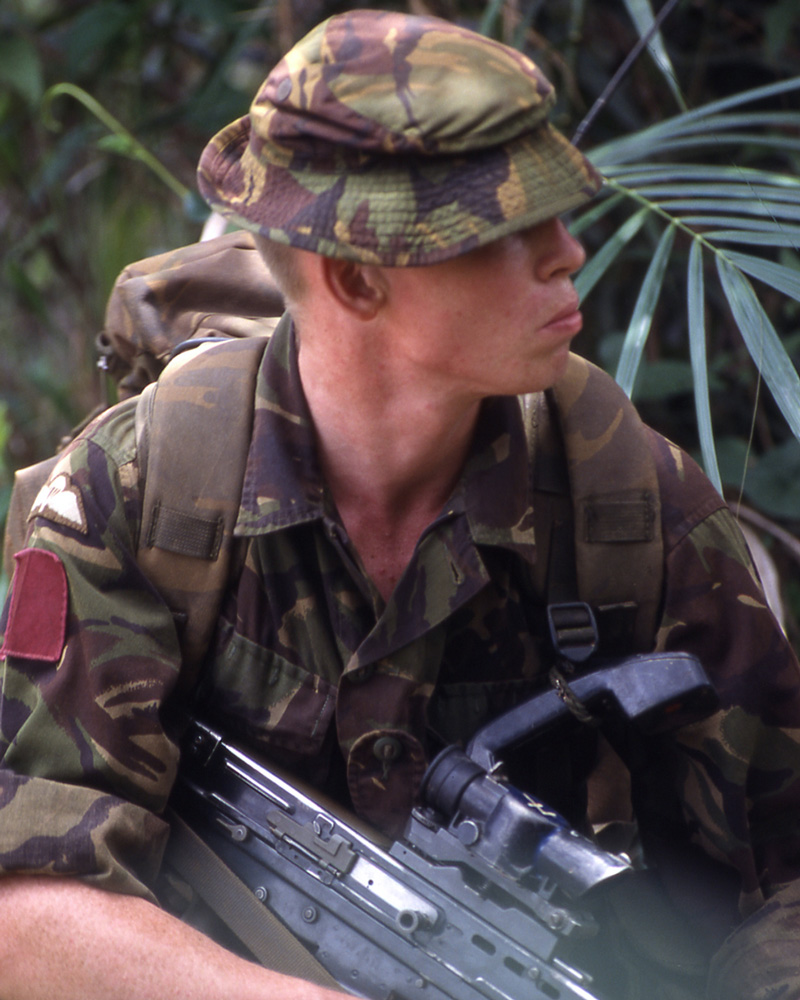
A soldier of 1st Battalion The Parachute Regiment during Operation Barras, 2000 (© Andrew Chittock)
Assault on Magbeni
At the same time, the Paras attacked the village of Magbeni on the other side of Rokel Creek. This was vital to prevent the West Side Boys stationed there from intervening against the rescue mission taking place at Gberi Bana.
The Paras had to jump out of the helicopters into a waist-deep swamp. Worse, in the early stage of the battle, their commander and some key personnel were wounded by a mortar shell. Despite this setback, they pressed on and, after bitter fighting, were also victorious. They released civilians being held prisoner there and recaptured the vehicles belonging to the Royal Irish Regiment patrol.
Reflections
In this extract from the British Army film 'Charlie Charlie One', members of The Parachute Regiment reflect on their successful mission in Sierra Leone during September 2000.
Medals and awards
All British troops who saw service in Operation Barras received the Operational Service Medal for Sierra Leone.
In addition, many gallantry medals were awarded, including two Conspicuous Gallantry Crosses, Britain's second highest award (after the Victoria Cross) for bravery in combat.
Legacy
The West Side Boys suffered severe losses, from which they never recovered. Eventually, they all surrendered, helping to bring peace to Sierra Leone. The British suffered one dead and 12 wounded; these casualties were regarded as very light given the huge risks involved.
The skill and professionalism of Britain’s Special Forces had once again been demonstrated. The successful deployment of 1st Battalion The Parachute Regiment led to the creation of the Special Forces Support Group, now an integral part of UK Special Forces.
British troops stayed on in Sierra Leone, supporting its army and the United Nations mission there, helping to bring peace and stability to the country.
Impact
Colonel Simon Fordham of The Royal Irish Regiment reflects on Operation Barras. Interviewed in 2009.


